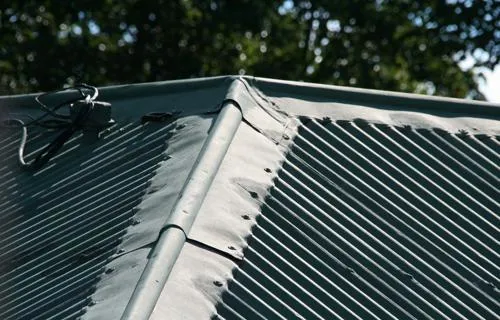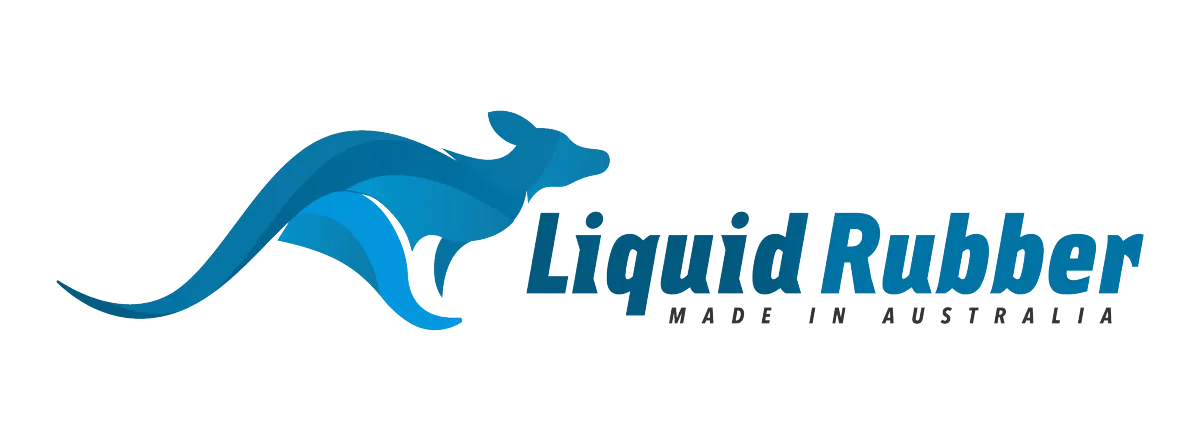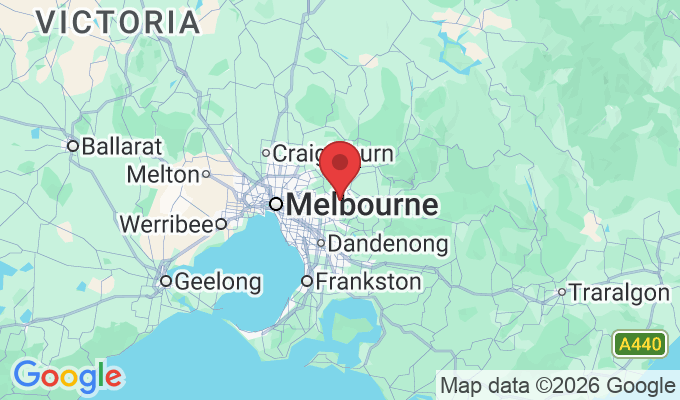Elevating Durability and Integrity of Retaining Walls
Using Liquid Rubber
Retaining walls, by their very nature, are constantly exposed to varying weather conditions and moisture levels. This exposure can lead to water seepage, structural damage, and even collapse if not properly protected.
Waterproofing is not just a preventive measure; it's a vital aspect of maintaining the structural integrity of these walls. Liquid Rubber provides a robust barrier against water penetration, effectively combating the common problems associated with retaining wall deterioration.
Why Liquid Rubber is the Ideal Choice
Superior Flexibility and Durability: Liquid Rubber's unique formulation allows it to flexibly adapt to the natural movements and shifts in the retaining wall, reducing the risk of cracks and leaks.
Long-Lasting Protection: With its exceptional adhesion and weather-resistant properties, Liquid Rubber ensures a prolonged lifespan for your retaining walls, significantly reducing maintenance costs and efforts.
Eco-Friendly and Safe: Understanding the environmental impact, our sealant is eco-friendly, making it a safe choice for both residential and commercial applications.
Versatility in Application: Whether your retaining wall is new or in need of refurbishment, Liquid Rubber seamlessly adheres to various materials, providing a consistent and reliable waterproofing solution.
Ease of Use: Designed with both professionals and DIY enthusiasts in mind, Liquid Rubber ensures a straightforward application process, making it accessible for all skill levels.
Secure Your Retaining Wall in 6 Simple Stages Using Liquid Rubber
Stage 1: Power Wash for a Clean Start
Thorough Cleaning: Begin by power washing the entire surface of the retaining wall, including the footing.
Remove Debris: Make sure to scrape off any dry concrete spillages.
Stage 2: Detailing - Part 1 with Geo-Textile
Geo-Textile Application: Apply a 150mm strip of Geo-Textile along the entire wall-floor join, embedding it into the Liquid Rubber Waterproof Sealant.
Stage 3: Detailing - Part 2 for Enhanced Protection
Bridge Cracks and Gaps: Pre-cut Geo-Textile to cover any cracks, gaps, holes, and corners, embedding it into the Waterproof Sealant for maximum sealing.
Stage 4: First Coat of Waterproof Sealant
Initial Sealant Layer: Apply a generous first coat of Liquid Rubber Waterproof Sealant to the entire retaining wall surface. Use an up-and-down motion for even coverage.
Stage 5: Second Coat for Reinforced Waterproofing
Additional Sealant Layer: Once the first coat has cured, apply a second coat of Liquid Rubber Waterproof Sealant in a left-to-right motion for comprehensive protection.
Stage 6: Final Steps with Corflute and Backfilling
Curing and Protection: Allow the Waterproof Sealant to cure for 48-72 hours before proceeding.
Applying Protection Board: Install corflute protection board post-curing.
Backfilling: Backfill with dirt, applying gravel and ag-pipe as recommended.
Step-By-Step Waterproofing Instructions
Surface Preparation: Clean the retaining wall thoroughly, including the footing. Remove any concrete spillages.
Dust Removal: Use a leaf blower to clear away any residual dust.
Geo-Textile Preparation: Cut and apply Geo-Textile to all necessary areas. Ensure a 150mm application at the wall-floor join.
Sealant Application: Apply Liquid Rubber Waterproof Sealant with a brush, carefully embedding the Geo-Textile.
Rapid Cure Option: Optionally use Rapid Cure Spray for quicker setting (watch the instructional video for guidance).
First Sealant Coat: Apply the first layer of Waterproof Sealant using an up-and-down motion.
Second Sealant Coat: Once cured, apply the second layer in a left-to-right motion.
Recommended Thickness: Aim for a 1.5mm dry-film thickness.
Final Steps: Ensure proper curing before applying corflute and backfilling with dirt. Include gravel and ag-pipe as part of the backfilling process.
Learn more about using Liquid Rubber.

Expert Tips to Detect and Repair Metal Roof Leaks with Liquid Rubber
Metal roofs are prized for their durability, energy efficiency, and sleek appearance. However, like any roofing material, they can develop leaks over time due to wear and environmental factors.
With Liquid Rubber Waterproof Sealant, you can tackle these leaks effectively and protect your property from water damage.

Common Causes of Metal Roof Leaks
Understanding the root causes of leaks is essential for effective repair. Common issues include:
Improper installation
Damaged or missing fasteners
Rusted or weakened seams
Open headwalls or flashing
Missing trims
Loose gutters or downspouts
Gaps in seams and joints
Rust damage and corrosion
By identifying these vulnerabilities, you can take targeted action to resolve leaks and prevent further roof damage.
How to Locate a Leak in Your Metal Roof
Finding the source of the leak is the first critical step. Inspect the following areas:
Roof Surface
Check for holes, rust, and damaged screws.
Look for shifted or misaligned panels.
Connection Points
Examine seams and joints for missing sealant or tape.
Ensure panel overlaps are properly aligned.
Roof Openings
Inspect the seals and trims around vents, pipes, and skylights.
Look for cracks or deterioration in flashing seals.
Roof Edges
Check gutters and flashing for damage.
Inspect for rotting sealants or cap issues.

Fixing Metal Roof Leaks with Liquid Rubber
Liquid Rubber Waterproof Sealant is a versatile and effective solution for repairing metal roof leaks. Here’s how to use it:
Step 1: Prepare the Roof
Tighten or replace any loose fasteners and screws.
Clear away debris, and power wash the roof to remove dirt and rust.
Allow the roof to dry completely before applying any sealant.
Step 2: Reinforce Seams and Joints
Use Liquid Rubber Seam Tape to cover cracks and gaps.
For larger gaps, apply a metal-safe caulking product.
Reinforce areas around vents and flashing with seam tape.
Step 3: Apply Liquid Rubber Waterproof Sealant
Start by sealing reinforced areas with seam tape.
Apply a uniform coat of Liquid Rubber Waterproof Sealant across the roof using a brush, roller, or sprayer.
Allow the first coat to dry completely before adding a second coat for enhanced durability.
Liquid Rubber on Roof Leaks: Pro Tips for Best Results
Patch First: Address holes and significant cracks with seam tape before applying the sealant.
Prime Rusted Areas: Use a water-based rust primer on heavily corroded sections to ensure proper adhesion and long-term results.
Choose Optimal Conditions: Avoid applying the sealant during windy, rainy, or extremely hot weather. Ideal temperatures and calm weather improve application and drying.
Benefits of Liquid Rubber for Metal Roof Repairs
Liquid Rubber products are designed with DIY enthusiasts in mind, offering a cost-effective and environmentally friendly way to repair metal roof leaks.
Non-Toxic: Safe for you, your family, and the environment.
Durable: Creates a long-lasting, waterproof membrane to prevent future leaks.
Cost-Effective: Save money by avoiding expensive professional repairs.
Ease of Use: Simple application with common tools like brushes or rollers.
Protect Your Roof and Save Money with Liquid Rubber
With Liquid Rubber Waterproof Sealant, you can confidently address metal roof leaks, ensuring your property stays dry and secure.
This reliable solution not only saves you time and money but also extends the life of your roof, providing peace of mind for years to come.
Shop for Liquid Rubber products today and discover how easy it is to maintain a leak-free roof!


Expert Tips to Detect and Repair Metal Roof Leaks with Liquid Rubber
Metal roofs are prized for their durability, energy efficiency, and sleek appearance. However, like any roofing material, they can develop leaks over time due to wear and environmental factors.
With Liquid Rubber Waterproof Sealant, you can tackle these leaks effectively and protect your property from water damage.

Common Causes of Metal Roof Leaks
Understanding the root causes of leaks is essential for effective repair. Common issues include:
Improper installation
Damaged or missing fasteners
Rusted or weakened seams
Open headwalls or flashing
Missing trims
Loose gutters or downspouts
Gaps in seams and joints
Rust damage and corrosion
By identifying these vulnerabilities, you can take targeted action to resolve leaks and prevent further roof damage.
How to Locate a Leak in Your Metal Roof
Finding the source of the leak is the first critical step. Inspect the following areas:
Roof Surface
Check for holes, rust, and damaged screws.
Look for shifted or misaligned panels.
Connection Points
Examine seams and joints for missing sealant or tape.
Ensure panel overlaps are properly aligned.
Roof Openings
Inspect the seals and trims around vents, pipes, and skylights.
Look for cracks or deterioration in flashing seals.
Roof Edges
Check gutters and flashing for damage.
Inspect for rotting sealants or cap issues.

Fixing Metal Roof Leaks with Liquid Rubber
Liquid Rubber Waterproof Sealant is a versatile and effective solution for repairing metal roof leaks. Here’s how to use it:
Step 1: Prepare the Roof
Tighten or replace any loose fasteners and screws.
Clear away debris, and power wash the roof to remove dirt and rust.
Allow the roof to dry completely before applying any sealant.
Step 2: Reinforce Seams and Joints
Use Liquid Rubber Seam Tape to cover cracks and gaps.
For larger gaps, apply a metal-safe caulking product.
Reinforce areas around vents and flashing with seam tape.
Step 3: Apply Liquid Rubber Waterproof Sealant
Start by sealing reinforced areas with seam tape.
Apply a uniform coat of Liquid Rubber Waterproof Sealant across the roof using a brush, roller, or sprayer.
Allow the first coat to dry completely before adding a second coat for enhanced durability.
Liquid Rubber on Roof Leaks: Pro Tips for Best Results
Patch First: Address holes and significant cracks with seam tape before applying the sealant.
Prime Rusted Areas: Use a water-based rust primer on heavily corroded sections to ensure proper adhesion and long-term results.
Choose Optimal Conditions: Avoid applying the sealant during windy, rainy, or extremely hot weather. Ideal temperatures and calm weather improve application and drying.
Benefits of Liquid Rubber for Metal Roof Repairs
Liquid Rubber products are designed with DIY enthusiasts in mind, offering a cost-effective and environmentally friendly way to repair metal roof leaks.
Non-Toxic: Safe for you, your family, and the environment.
Durable: Creates a long-lasting, waterproof membrane to prevent future leaks.
Cost-Effective: Save money by avoiding expensive professional repairs.
Ease of Use: Simple application with common tools like brushes or rollers.
Protect Your Roof and Save Money with Liquid Rubber
With Liquid Rubber Waterproof Sealant, you can confidently address metal roof leaks, ensuring your property stays dry and secure.
This reliable solution not only saves you time and money but also extends the life of your roof, providing peace of mind for years to come.
Shop for Liquid Rubber products today and discover how easy it is to maintain a leak-free roof!

Contact Us
17 Vivian Street Blackburn North 3130 Victoria, Australia

